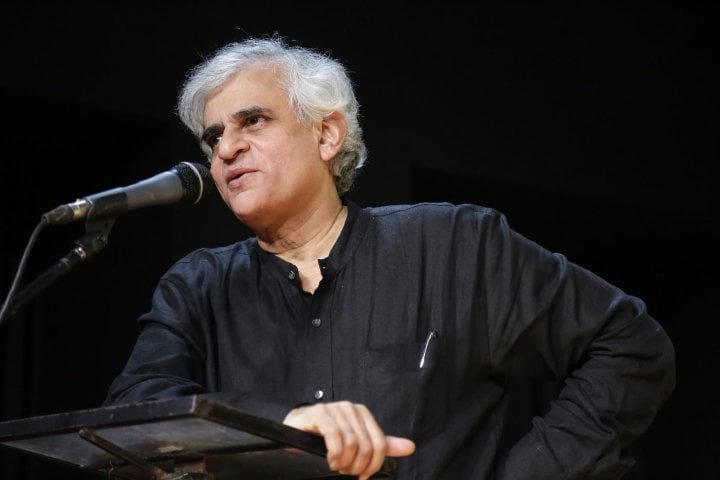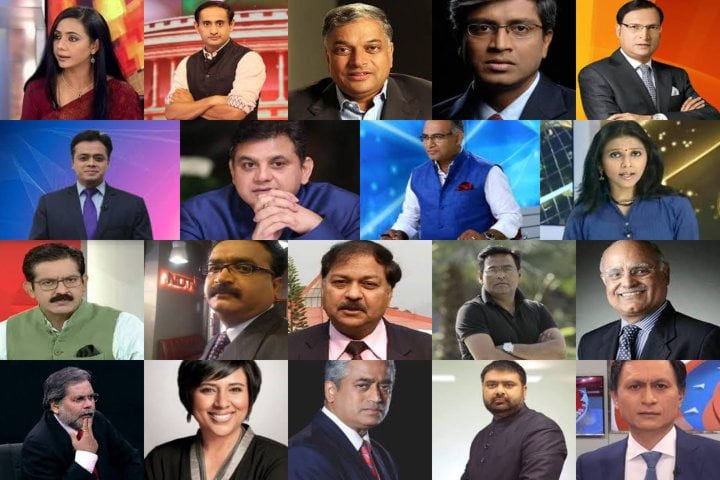CUET UG Journalism
Qualities of a Journalist
Journalism is an indispensable profession that is pivotal in informing the public, shaping opinions, and holding those in power accountable. A journalist’s qualities are crucial for performing their duties effectively. Let’s discuss the essential qualities that make a journalist competent and respected in their field, such as having a nose for news, inquisitiveness, strong language skills, trustworthiness, and empathy.
Nose for News
How do events become news? What criteria do journalists use to assess newsworthiness? This question is at the heart of the journalism profession.
A nose for news is one of a journalist’s essential qualities. This trait refers to the journalist’s natural talent for identifying newsworthy stories that capture the public’s interest.
Instinct and Judgment
A journalist who is good at finding news has a natural ability to know which stories will interest their audience. This means understanding the importance and impact of events and recognizing what makes a story interesting.
Experience and Training
Experienced journalists develop a nose for news by learning from their successes and mistakes while covering different stories. Some of this ability comes naturally, but most is gained through experience and training.
Understanding the Audience
Journalists must understand their audience. This includes knowing their demographic, interests, concerns, and the type of news that will engage them. This understanding helps journalists prioritize stories that matter most to their readers.
The rise of digital platforms like “The Wire,” “The Quint,” and “Scroll.in” demonstrates the importance of understanding a younger, tech-savvy audience and providing them with the detailed reportage and alternative facts that mainstream media often overlooks due to commercial compulsions.
Awareness of Trends
Journalists must stay updated on current trends and issues. They must observe societal changes, emerging topics, and public sentiments to find important news stories.
Inquisitiveness
A journalist’s pursuit of truth is driven by curiosity. Being curious pushes journalists to ask tough questions, dig deeper, and uncover hidden story aspects.
Relentless Questioning
Inquisitive journalists are not satisfied with surface-level information. They continuously ask “why,” “how,” and “what next” to get to the heart of the matter. This relentless questioning often leads to uncovering crucial details that others might overlook.
However, sometimes this leads to mistrust between journalists and interviewees. One prime example is Karan Thapar’s infamous 2004 interview with the then-chief minister of Tamil Nadu, J Jayalalithaa, for BBC World’s program HARDtalk India.
Thapar is known to challenge his subjects’ opinions to their faces or prod them relentlessly to answer uncomfortable questions. His interviewing style has drawn both applause and criticism from different quarters.
Research Skills
Strong research skills complement curiosity. Journalists need to know where to find reliable information, how to verify facts, and how to piece together data from various sources to form a comprehensive story.
Open-Mindedness
Being open-minded allows journalists to explore different perspectives and consider various story angles. This broadens their understanding and helps them provide a balanced view.
Persistence
An inquisitive journalist is persistent. They don’t give up easily, even when faced with obstacles. Investigative journalism relies on determination, as finding the truth often takes time and effort.
Language Skills
Effective communication is at the heart of journalism, making language skills one of the most critical qualities of a journalist. Mastery of language allows journalists to convey complex information clearly and engagingly.
Clarity and Precision
Journalists must write precisely and clearly to ensure the audience understands their message. This involves using simple language, avoiding jargon, and being concise.
Storytelling Ability
Good journalists are also good storytellers. They skillfully integrate factual information into a captivating narrative that engages the reader and informs them. This skill is essential for making news stories interesting and relatable.
Grammar and Style
Proficiency in grammar and writing style is fundamental. Journalists must adhere to their publication standards, often following specific style guides like those of the Associated Press (AP) or Press Council of India.
Multilingualism
Being proficient in multiple languages can provide a significant advantage in a globalized world. It enables journalists to reach a wider audience and access information from diverse sources.
Trustworthy
Trustworthiness is perhaps the most critical quality for a journalist. Journalists’ credibility and work depend on their honesty, integrity, and commitment to ethical standards. Even a slight deviation from this puts a question mark on their duty to their profession.
In an infamous video clip from 2014, Arvind Kejriwal asked the noted television anchor Punya Prasun Bajpai, then associated with Aaj Tak, to play up some portions of the interview that he thought would resonate with the masses. The journalist agrees, saying that the particular portion was krantikaari (revolutionary) and would get a lot of reactions.
Accuracy
Trustworthy journalists consistently prioritize factual accuracy and truthfulness in their reporting, ensuring their information is reliable and trustworthy. They fact-check, verify sources, and refrain from speculation to maintain their journalistic integrity and public trust.
The meticulous fact-checking by Alt News, a fact-checking website, has made it a trusted source of accurate information.
Objectivity
Maintaining objectivity is crucial. Journalists should report facts without letting personal biases influence their coverage. This impartiality helps build credibility with the audience.
Transparency
When journalists are open about their sources and methods, it enhances their credibility. Journalists should clearly attribute their information and elaborate on how they obtained it whenever feasible.
Ethical Conduct
Following ethical guidelines is essential for maintaining integrity in professional conduct. Reputable organizations like the Press Council of India have outlined these rules, which include guidelines for avoiding conflicts of interest, maintaining confidentiality, and promptly fixing any mistakes that may occur.
However, the reality is quite different when practicing ethical conduct in journalism.
Since 1991, the Indian economy has liberalized, and there has been increased investment in private companies, including media organizations. This has led to situations where journalists have found it profitable to write partially true stories about companies with commercial interests in their organizations.
In 2003, the publisher of The Times of India, Bennett Coleman and Company Ltd. (BCCL), introduced a paid content service, where journalists were paid to cover events. The BCCL scheme also included private agreements where companies would give BCCL equity in exchange for ad space.
In 2012, Zee News senior editors were arrested for reportedly asking for Rs 100 crore from Jindal Steel and Power Ltd. (JSPL). In exchange for this payment, they offered to reduce their network’s campaign against the company in the coal scam. The blackmail was uncovered when JSPL chairman and then Congress MP Naveen Jindal conducted a reverse sting on the network’s executives.
Empathy
Empathy is crucial for journalists, enabling them to establish deep personal connections with their subjects and audience. This connection encourages deeper understanding, respect, and the ability to tell stories with compassion and sensitivity.
P. Sainath is a renowned journalist who has garnered over 60 journalism awards during his 43 years of reporting on rural India’s issues, including agriculture, labor, and social sectors.

He was shocked to discover that Indian news organizations had no full-time correspondents covering agriculture and labor, preferring to concentrate on Bollywood, high-society events, and business.
Rural India holds many unique and diverse stories of people, languages, professions, arts, and more. To bring those stories forward, he established the People’s Archive of Rural India (PARI), a comprehensive multimedia repository documenting ordinary people’s daily lives.
Understanding and Compassion
Empathetic journalists are dedicated to understanding the experiences and emotions of the individuals they report on. This commitment enables them to present stories in a manner that is respectful to the subjects and deeply connects with the audience.
Building Trust
When journalists approach their subjects with empathy, they can establish trust and create an atmosphere of openness. This approach often results in the development of more comprehensive and genuine stories.
Humanizing Stories
Journalists can add a human touch to their stories by using empathy to shed light on the people impacted by events. This approach can make the news more relatable and deeply influential.

Rohini Mohan, an Indian journalist focusing on politics, environment, and human rights in South Asia, authored “The Seasons of Trouble.” The book delves into the three-decade-long civil war in Sri Lanka that ended in 2009, during which more than 40,000 civilians lost their lives, and over a million people were displaced.
The nonfiction account narrates the stories of three individuals affected by the ethnic conflict in Sri Lanka, set against the backdrop of Jaffna and Colombo. It portrays their loyalties, aspirations, and the enduring struggles they faced.
Advocacy
Empathetic journalists, by staying impartial, can bring attention to important issues the public needs to know about. Through their compassionate storytelling, they can rally public opinion and inspire meaningful action to bring about positive change.
Conclusion
Journalism is a multifaceted and intricate profession that demands many skills and attributes. A proficient journalist must possess a sharp understanding of newsworthy events, natural inquisitiveness, exceptional language proficiency, a proven track record of reliability, and a profound sense of empathy toward their subjects.
These qualities are essential for success in this profession. They allow journalists to pursue the truth, effectively communicate their findings, and connect with their audience personally.
In today’s world, four crucial factors affect media content:
- A growing market for media consumption
- Market perceptions of what readers with disposable incomes want
- The changing role of the editor, and
- Growing consensus between political parties, the corporate world, and the media
Combining these four factors with cross-media ownership, the growing trend of ‘paid news,’ and the lack of effective and viable self-regulatory mechanisms makes it challenging for individuals and institutions to uphold journalism’s core values and principles.
However, journalists play a crucial role in society’s ever-changing media landscape. They are expected to embody certain qualities that enable them to enlighten, educate, and inspire the public, thereby upholding the integrity and influence of their profession.
The CUET UG Mass Communication syllabus contains this topic under the Journalism section.








